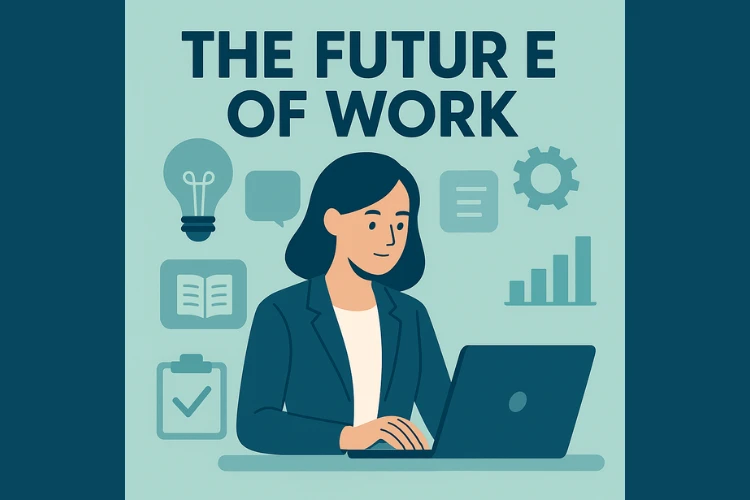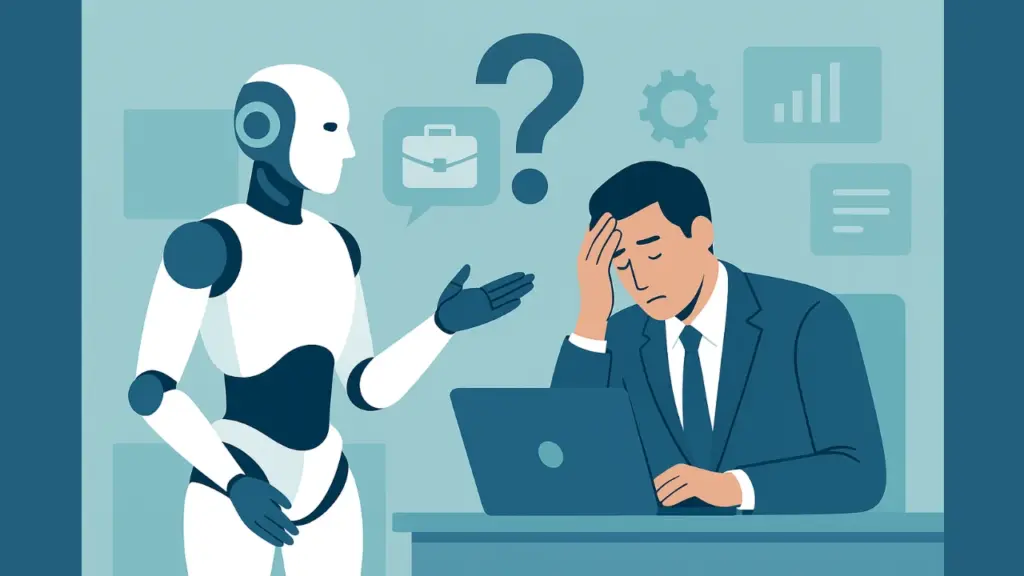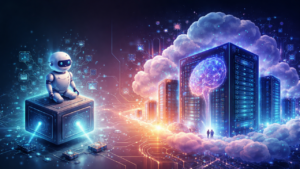Introduction
Artificial intelligence (AI) is no longer a futuristic concept. It’s here, and it’s transforming industries at lightning speed. From chatbots handling customer service to algorithms analyzing massive datasets in seconds, AI is reshaping the way we work.
But this transformation comes with a big question: Will AI take your job?
The truth is, some roles are at high risk of automation, while others remain safe thanks to skills AI can’t replicate—like empathy, creativity, and adaptability. This article explores which jobs AI is likely to replace, which ones are safe, and how workers can adapt to thrive in the AI-powered future.
AI’s Strength: Information Processing, Not Human Connection
AI thrives when it comes to information processing. It can analyze data, detect patterns, and automate repetitive tasks faster and more accurately than humans. That’s why AI excels in roles involving structured processes—like scanning medical images or compiling financial reports.
However, AI struggles with human connection. It lacks emotional intelligence, intuition, and the ability to understand complex social cues. A machine might answer your question, but it won’t comfort you when you’re scared or inspire you when you’re stuck.
This gap means certain jobs—especially those requiring empathy, leadership, and interpersonal skills—are far less likely to be replaced.
Jobs AI Is Most Likely to Replace
1. Web Development
At first glance, web development might seem safe. It requires creativity and problem-solving. But with AI-powered coding assistants and no-code platforms, basic website creation is becoming automated.
Tools like GitHub Copilot can write functional code in seconds. This means simple, template-based websites will increasingly be built by AI. However, complex projects that require deep customization, UX strategy, and business alignment still need human developers—especially those guided by a fractional CTO who understands both technology and business needs.
2. Market Research Analysts
Market research involves gathering and interpreting data to identify trends and opportunities. AI excels in this area. It can scrape millions of data points, process them instantly, and produce insights without fatigue.
However, AI can’t replace the strategic judgment of an experienced analyst who understands cultural nuances, consumer psychology, and brand positioning. In the future, analysts who can partner with AI to produce actionable strategies will stay ahead.
3. Dishwashers & Routine Manual Labor
Robotic automation is making its way into commercial kitchens, warehouses, and manufacturing plants. Dishwashing is a repetitive, predictable task, making it easy for robots to handle.
While full automation might be expensive for small businesses now, costs are dropping. Within a decade, many routine physical labor jobs could be fully automated.
Jobs AI Is Least Likely to Replace
1. Nursing and Healthcare Roles
AI can assist in diagnosis, track patient vitals, and even predict disease risks. But healthcare is about more than medical accuracy—it’s about human care.
Nurses, doctors, and therapists provide emotional support, reassurance, and personalized judgment that machines can’t replicate. Even the most advanced AI can’t hold a patient’s hand during a difficult moment.
2. Hazardous Material Removal Specialists
AI-driven robots are being tested in dangerous environments like nuclear plants and chemical spill sites. While machines can help reduce human exposure, they can’t fully replace trained specialists yet.
These jobs often require quick, on-the-spot decision-making in unpredictable situations—something AI still struggles with. Until robotics becomes more adaptable, humans will remain essential in this field.
3. Teachers and Educators
Education isn’t just about delivering information—it’s about mentorship, adaptability, and inspiration. AI can generate lesson plans and provide personalized quizzes, but it can’t replace the human ability to understand a student’s struggles, adapt to their learning style, or inspire their curiosity.
Teachers who integrate AI tools into their teaching—not as a replacement, but as a supplement—will become even more valuable.
Evolving Roles: AI as a Partner, Not a Threat
Instead of viewing AI as a competitor, forward-thinking professionals see it as a partner. The best approach is to learn how AI works and how to use it to your advantage.
- Web Developers can use AI to handle repetitive coding tasks, freeing time for design and innovation.
- Teachers can personalize learning using AI analytics while focusing on real human interaction.
- Healthcare Professionals can use AI to speed up diagnoses while dedicating more time to patient care.
In many cases, the fractional CTO role is becoming critical. A fractional CTO can guide businesses on how to integrate AI effectively, balance automation with human input, and ensure technology serves strategic goals.
The Future of Work: Skills That Will Keep You Relevant
To stay competitive in the AI-driven job market, focus on skills AI can’t replicate.
1. Critical Thinking
AI can give you data, but it can’t determine the best course of action in complex, real-world situations.
2. Problem-Solving
Unpredictable problems often require creativity and resourcefulness that AI lacks.
3. Emotional Intelligence
The ability to read emotions, build trust, and influence people remains uniquely human.
4. Lifelong Learning
Technology evolves rapidly. Adapting to new tools and methods will keep your skills relevant.
5. Tech Literacy for Non-Tech Roles
Even in creative or managerial roles, understanding how AI works will help you use it more effectively.

Conclusion
AI will reshape the workforce, but it won’t eliminate every job. Roles that rely heavily on repetitive, structured tasks are most at risk, while jobs requiring empathy, adaptability, and creativity are safer.
The winning strategy is to embrace AI as a tool, not fear it as a threat. Learn how to integrate it into your work, focus on the skills that make you uniquely human, and adapt as industries evolve.
At startuphakk, we believe the future belongs to those who understand how to work with AI, not against it. Whether you’re a developer, teacher, or healthcare professional, your best career protection is continuous learning and strategic adaptability.




